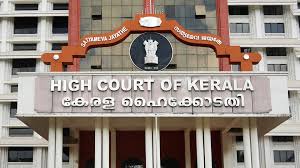Hriday Shah
On the 17th of December 2024, in the case of Nishad K. U. v. The Joint Commissioner, the Kerala High Court passed an order highlighting how the failure to grant a cross-examination opportunity in GST Penalty cases would violate natural justice.
The Applicant, a registered taxpayer, challenged an order assessing a penalty that exceeded Rs. 9.40 crores under S. 74(9) of the CGST Act and additional Rs. 9.40 crores under S. 122(1) along with a few additional penalties and interests.
After the order was passed, the Applicant stated that the penalty recommended in the show cause notice should not apply to the allegations of intentional misstatements and suppression of facts to avoid GST. Twenty peoples’ statements were received which depicted that the applicant, through bogus registrations and suppressed sales, got excessive amount of input tax credit. Applicant not only denied all allegations but also urged for verifications of the people.
Applicant was heard on 31st January 2024, but was denied cross-examination on 7th February 2024. The Applicant then submitted another reply and sought withdrawal of the proceedings and to be provided with another chance of cross-verification.
It was observed that the applicant was engaged in fraudulent activities using the PAN and Aadhaar details of individuals referred to as “goalies”. By misusing invoices and e-way bills, a carousel of Input Tax Credit (ITC) across various states was created, facilitating the illicit supply of plywood under the names of these goalies, who acted merely as name lenders in the transactions and were later managed through other intermediaries.
According to Section 107(11) of the Act, the Appellate Authority lacks the power to remand a case, even if the contested order has defects or violates principles of natural justice. The Appellate Authority is limited to reviewing, modifying, or nullifying the order under appeal.
The Kerala high Court stated that the applicant’s request for cross-verification is unnecessary, as it does not undermine the validity of the evidence obtained through the testimonies of witnesses. After reviewing several other judgments and making critical observations, the adjudicating authority concluded that the request for cross-examination lacked merit.
The Court concluded that the principles of natural justice were violated by not allowing the applicant the opportunity for cross-verification and by relying on the statements of individuals to impose the penalty. The order was overturned and the Respondent was directed to reassess the case after providing the individuals whose statements were recorded during the investigation the opportunity for re-examination.
Case Title: Nishad K. U. v. The Joint Commissioner
Bench: Justice Bechu Kurian Thomas
Diary No.: WP (C) No. 26732 of 2024

